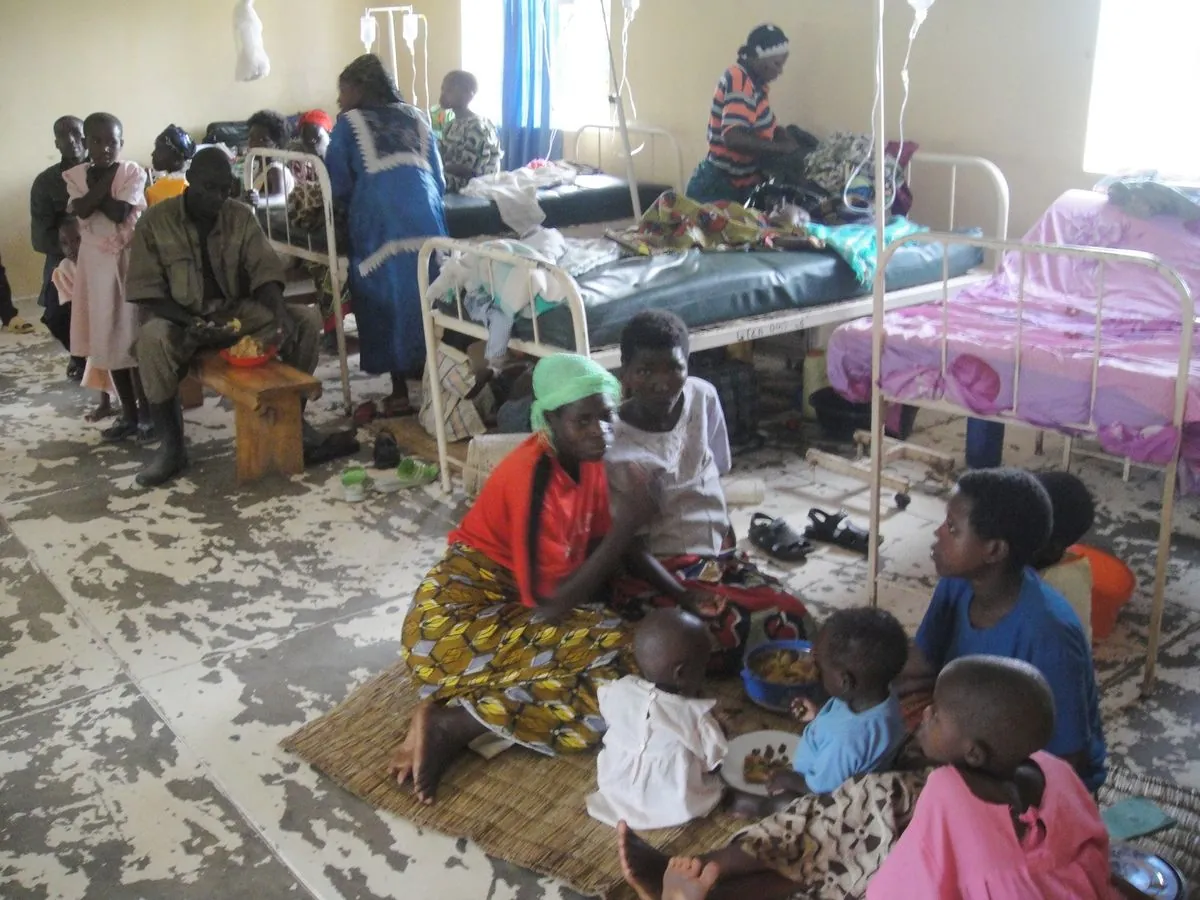The Democratic Republic of Congo (DRC) is currently at the epicenter of a severe mpox outbreak, which the World Health Organization declared a global public health emergency last month. The situation in the eastern part of the country has become particularly dire, with healthcare facilities struggling to cope with the influx of patients and a severe shortage of resources.
In the town of Kavumu, a makeshift mpox isolation ward has been established to accommodate the growing number of cases. Over the past three months, the hospital complex has admitted 900 symptomatic patients, highlighting the rapid spread of the disease. Dr. Musole Mulamba Muva, the head doctor at the facility, expressed his concerns about the daily struggle to provide adequate care:
"We run out of medicine every day. There are many challenges we struggle to overcome with our local means."
The overcrowding in the isolation ward is evident, with 135 patients, including both children and adults, crammed into three large plastic tents without proper flooring. This situation not only compromises patient comfort but also increases the risk of disease transmission.
President Felix Tshisekedi has authorized an initial $10 million disbursement to combat the outbreak, and vaccines are expected to arrive within days to fight the new strain of the virus. Cris Kacita, the head of Congo's mpox response team, acknowledged the medicine shortages in parts of the country and emphasized that distributing donations, including 115 tonnes of medicine from the World Bank, is a top priority.
Mpox, first discovered in 1958, causes flu-like symptoms and pus-filled lesions. While usually mild, it can be fatal, especially for children, pregnant women, and individuals with weakened immune systems. The disease has been endemic in parts of Central and West Africa, with the first human case recorded in the DRC in 1970.
As of August 31, 2024, the DRC health ministry reported 19,710 suspected mpox cases since the beginning of the year, with 5,041 confirmed cases and 655 fatalities. These numbers underscore the severity of the current outbreak and the urgent need for effective interventions.
The shortage of medicine has led some patients to resort to traditional remedies. Nzigire Lukangira, a 32-year-old mother with a hospitalized toddler, described the desperate situation:
"We do not have anything to eat. When we ask for something to lower our children's temperature, they do not give us anything."
Patients have been observed using potassium bicarbonate and salty lemon juice to alleviate symptoms and pop blisters, highlighting the dire need for proper medical supplies and treatments.
As the DRC continues to battle this outbreak, the global health community watches closely. The situation serves as a stark reminder of the importance of robust healthcare systems and the need for rapid, coordinated responses to emerging health crises. With vaccines on the horizon and increased government support, there is hope that the tide may soon turn in the fight against mpox in the Democratic Republic of Congo.
